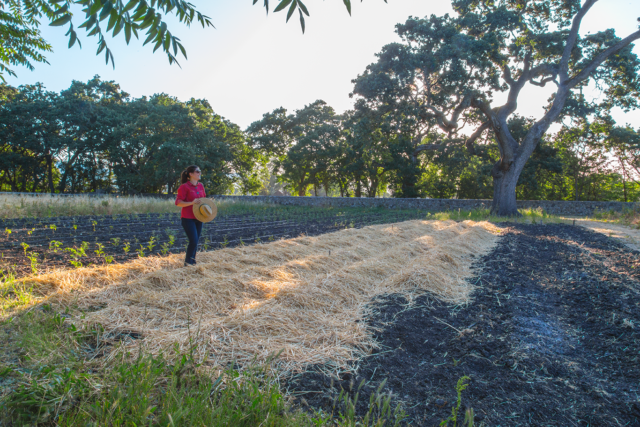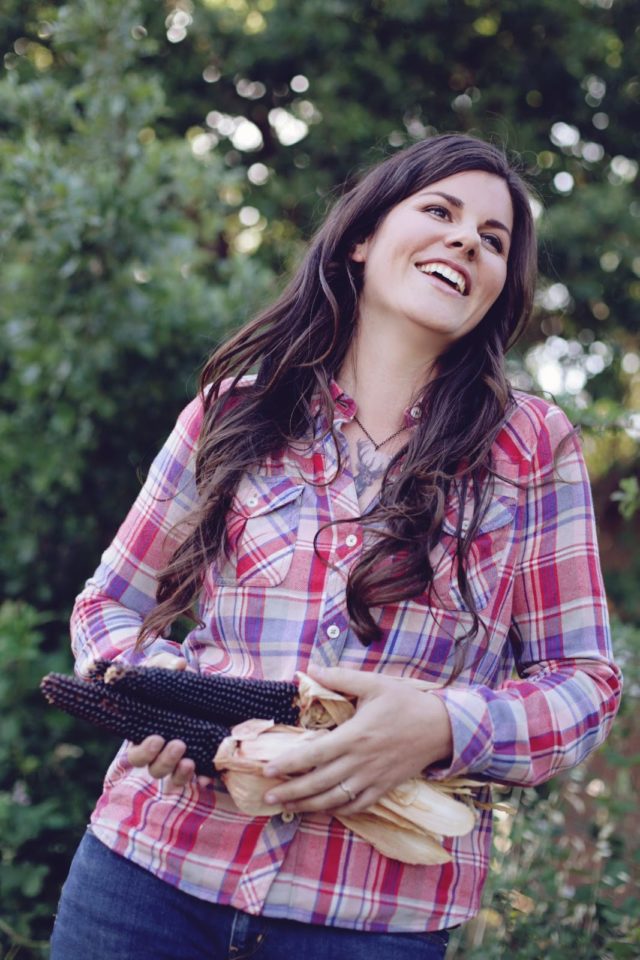
The National Organic Certification Cost Share Program (NOCCSP) is a nationwide rebate program that, as its name suggests, helps farmers cover the cost of becoming USDA Certified Organic. Juan Raygoza of Terra Preta Farm in Weslaco, TX describes the necessity of the NOCCSP for his operation: “In very simple words, if we were not able to receive the cost share support, we would not be able to afford the organic certification. Being certified has allowed us to access wholesale markets and make our products more accessible to people, and to support our farm with more market channels.”
The program covers 75% of a farm’s certification costs up to a $750 maximum. All farmers need to do is fill out some brief paperwork, and bring their receipts or invoices from any payments they have made toward certification in to their local certifier.

One young farmer, Andrea Davis-Cetina, who has used the NOCCSP program for five years at her vegetable farm in Sonoma, California described the Cost Share: “It’s money that’s available to farms and because the paperwork is simple enough, you should do it to get the money that’s basically yours waiting to be picked up.”
Certifiers are usually your local USDA office or local State Department of Agriculture office. Although it varies across states, farmers from California to Michigan to Maryland reported the paperwork to be relatively easy, short, and completely worth it.
The Organic Certification Cost Share extends beyond just a one-year use. It incentivizes farmers to both make the switch to being certified organic, and to stay there each year. Andrea signed up her first year, and every year that the program was available after that.
Andrea shared her surprise that “it was something I could do every year and that it was percentage-based. Your certification costs are based on the size of your farm, both physically and income wise.” The percentage-based payouts mean that as your farm grows, the money you get back to cover your more expensive certification grows too.
Brian Bates of Bear Creek Organic Farm in Petoskey, MI is in his fifth season as a certified Organic farmer. “We certified organic right away, before we even sold anything. A little unusual, but we were really dead set on doing it,” Brian says.
It can be hard for beginning farmers to cut a profit in their first few years. The NOCCSP helps farmers get ahead in markets by satisfying the customer demand for high-quality organic products, while also saving them money by lowering the certification costs. Almost every farmer we spoke to told us about the value of organic certification as a way to increase their customer base, and to reassure their customers that the products they buy were responsibly grown. Brian of Bear Creek said he’d be “hard-pressed to find the person that has nobody asking them if they’re organic.” For many farmers, the Cost Share is the biggest factor in enabling them to afford that certification, and the market growth that comes with it.
Hannah Breckbill of Humble Hands Harvest, a diversified vegetable and livestock worker-owned cooperative farm she started in 2013 in Decorah, IA, told us that she’s “not sure we’d certify organic if we didn’t have access to this cost share, because money is certainly tight and we have to make choices about how we spend it. Knowing that we’ll get some of our certification fees back makes the decision to certify easier. I think it’s in everyone’s interest to have farms that use organic practices counted and seen.”
Andrea put a similar emphasis on the importance of holding organic farmers to a clearly defined set of standards: “I want there to be someone checking what I’m doing in the sense of being able to provide clear information to the customer. Don’t you like restaurants to be inspected by the health inspector? Yes, there is some expense, but the Cost Share with 75% of it being covered it makes it a bit of a non-issue.”
As the 2018 Farm Bill moves into Conference Committee, the NOCCSP is one of a handful of programs that may get left behind if neither a new Farm Bill nor an extension to the current Farm Bill is passed. Should that occur, come September 30th, the NOCCSP and a few other programs will immediately lose funding and farmers will be unable to access the program this coming year, or potentially indefinitely.

During the 2014 Farm Bill process, a delay in passing the new bill led to farmers losing out on the opportunity to use the Cost Share in 2013. Andrea was one such farmer. In the stalled process of the 2014 Farm Bill, 2013 was the only year since she started her farm that she was not certified with the help of the Cost Share program, effectively quadrupling her certification costs that year.
The only guarantee of funding for NOCCSP is the passage of a version of the 2018 Farm Bill that includes the Senate-proposed level of funding for the program. As we’ve seen with farmers like Juan Raygoza and Hannah Breckbill, the loss of this program may mean the loss of Organic Certification for many young and beginning farmers. The NOCCSP has a unique ability as a federal program to incentivize healthier and more environmentally-friendly practices and help meet the growing demand for organic food. Losing even a year of the Organic Certification Cost Share program because of a hold up in the farm bill legislative process would be a huge burden to new farmers, and to the consumers who depend on the seal to know that what they are buying is truly organic.